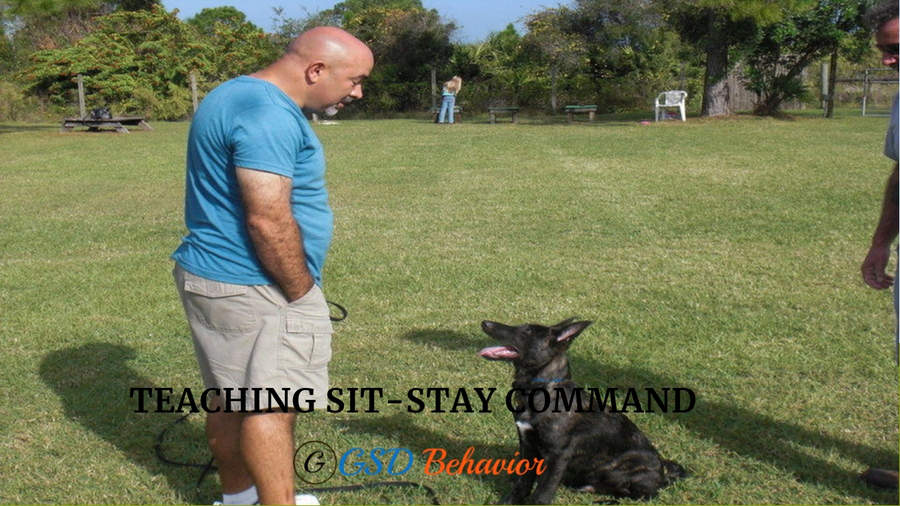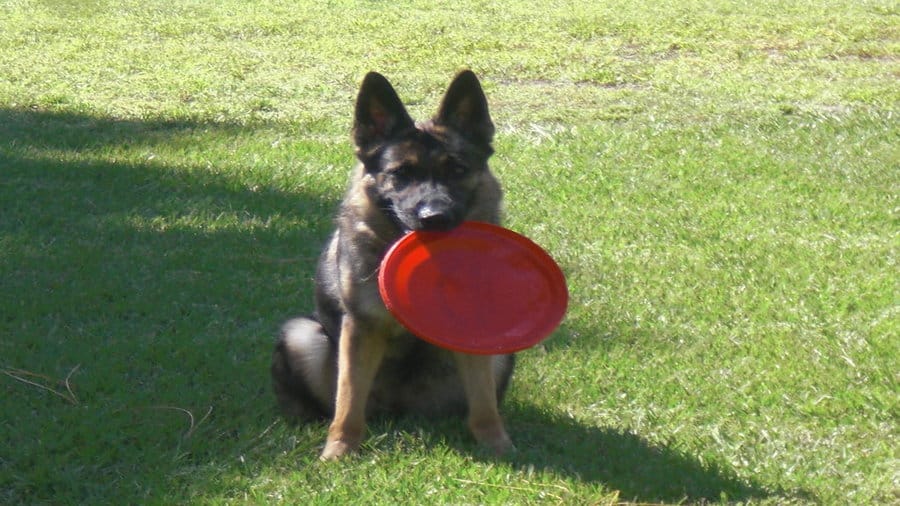In this article, we’re going to cover the information you need to know about owning the German Shepherd breed.
German Shepherd History:
The German shepherd dog has roots in Germany. Dating back to 1899, the breed is a fairly new one in the dog world. This breed owes its looks and temperament to a variety of shepherding dogs in Europe. Captain Max von Stephanitz is credited with creating the German shepherd dog that we are familiar with today. He is also credited with developing the rigid testing requirements the dog must undergo before it is able to be bred.
Structure
The German shepherd dog is a muscular, strong dog. The average height for the breed is between 22 inches and 26 inches at the withers. At a healthy weight, the dog weighs between 75 and 95 pounds. Here are some things to consider: Females are smaller, they average 60 to 70 pounds, males are 80 to 90 pounds.
Accepted Colors
Acceptable coat colors and patterns are white, sable, liver, gray, blue, black and tan, black and silver, black and red, black and cream, and black. Although white German shepherd dogs are fairly common, the coat color is not recognized by the American Kennel Club.
1. Grooming Requirements
German shepherd dogs shed throughout the year. The breed completely blows its coat twice a year. When you bring a dog of this breed into your home, you do so with the knowledge that your furniture, clothing, and carpeting will be covered in dog hair.
Most people do not enlist the services of a professional groomer for their German shepherd dog. Brushing can be done at home, and bathing is quite easily accomplished. Brush your dog daily to reduce the amount of hair floating through your house, and bathe your dog when it becomes dirty. Clip your dog’s toenails monthly, and clean its ears weekly.
2. Health and Care
This breed is typically a healthy one. Unfortunately, they are prone to some health issues that range from minor to life-threatening. These issues include hip dysplasia, elbow dysplasia, gastric dilation-volvulus, degenerative myelopathy, exocrine pancreatic insufficiency, and allergies. With regular veterinary checkups, you can keep your German shepherd dog as healthy as possible.
When it comes to care, the German shepherd dog needs to be kept busy. A bored dog will become destructive and, in severe cases, aggressive. People considering purchasing or rescuing a German shepherd dog should not do so unless they can commit to between 45 and 60 minutes of vigorous exercise each day.
3. Temperament and Training
The German shepherd dog is an aloof one. This dog may not make friends quickly or easily but, once it does, it is loyal for life. These dogs tend to do extremely well within their own families, but may be nervous and wary around strangers.
It is strongly recommended that this breed be socialized with humans and other animals early and often. This helps to ensure that your dog grows up to be a positive member of society. The highly-intelligent dog excels in obedience training, canine activities and sports, and as a working dog.
4. The Essential Characteristics
The German shepherd dog should be strong, assertive and intelligent. While it is expected to be wary and alert around strangers, it should never be frightened. Look for a puppy with parents that have been health tested and certified against hip dysplasia, eye disease, and hypothyroidism.
When you take the time to select a sound puppy, you will be graced with a dog that is well-mannered, even-tempered, and a joy to live with.
5. Most Common Questions Asked
People have an image in their minds of aggressive German shepherd dogs thanks to the animal’s work as a police and military dog. It is important to understand that these dogs are professionally trained for this type of work. German shepherd dogs are not vicious or aggressive dog by nature.
Many potential owners also question whether the dog will shed. If a clean home is important, the German shepherd dog is not the right choice. These dogs shed all year long, and they blow their coats twice a year, leaving tufts of hair in their wake.
Other potential owners want to know if a German shepherd dog makes a good guard dog. The answer to this question is that yes, the dogs do make excellent guard dogs, but only when properly trained. Guarding is an instinct that must be controlled through extensive, professional training.
 German Shepherd breeder:
German Shepherd breeder:
Five tips for choosing a German Shepherd.
 How to Choose a German Shepherd Puppy: If you’re ready to bring a German shepherd dog into your life, choosing the right puppy for your family will be one of the most important decisions that you make. If you choose the right puppy, you’ll have ten years or more of joy and happiness with your GSD. If you choose the wrong puppy, you’ll be left wondering why you’re having so many problems. Additionally, choosing the wrong puppy can set both you and the dog up for a world of heartache. Before you start searching for the perfect German shepherd, there are some things that you need to know:
How to Choose a German Shepherd Puppy: If you’re ready to bring a German shepherd dog into your life, choosing the right puppy for your family will be one of the most important decisions that you make. If you choose the right puppy, you’ll have ten years or more of joy and happiness with your GSD. If you choose the wrong puppy, you’ll be left wondering why you’re having so many problems. Additionally, choosing the wrong puppy can set both you and the dog up for a world of heartache. Before you start searching for the perfect German shepherd, there are some things that you need to know:
1. Responsible Breeders
The first step to finding a great puppy is to find a great breeder. When meeting with breeders, look for people who are passionate, knowledgeable and who ask you questions. A great breeder won’t let you choose from an entire litter but will take the time to get to know you and match you with one or two of their puppies. While you obviously aren’t required to purchase the puppy that is suggested to you, it would be wise for you to follow the breeder’s advice, especially if you are new to the breed.
2. Finding a Healthy Puppy
When looking at puppies, make sure that the litter you are choosing from looks healthy and cared for. Avoid purchasing a puppy with weeping eyes, a runny nose, congested chest or spots of missing fur coupled with scaling skin. Additionally, make sure that the breeder has had the sire and dam certified against hip and elbow defects; common problems within the German shepherd breed. While it’s not unusual for puppies to get sick now and then, a responsible breeder generally will not show a litter of sick pups.
3. Temperament is Key
Any knowledgeable trainer will tell you that temperament within the GSD breed is of incredible importance. German shepherds can be strong-willed and easily outsmart and out-muscle their inexperienced new owners. Look for a puppy that approaches you willingly, is alert and curious about you and your family. Unless you are an experienced German Shepherd owner, you should avoid the puppy that runs away or sits in the corner of the room, afraid to approach you. This puppy will often grow into a nervous, anxious dog in the hands of the wrong owner.
4. Your Lifestyle
Expect the breeder to ask you questions about your lifestyle. A responsible breeder will want to know who lives in your home, your work or school schedule and why you want a puppy. The German shepherd can be an excellent companion for an active, social family who is interested in making their new puppy a part of their daily lives. Because GSDs need extensive socialization and training, the breed is not the right choice for families who prefer to spend their leisure time camped out in front of the television.
5. History of the Line
When looking at a litter of GSDs, be sure to ask the owner about the bloodline of the puppies. Look for several generations of show or obedience champions within the litter’s lineage. Though having a strong lineage isn’t a requirement, it can mean the difference between a puppy that will grow into a confident dog that exceeds the breed standard and one that is unsociable, timid, and a poor representation of the breed.
Unfortunately, many people choose a puppy based on gender or appearance instead of mental and physical soundness. Gender and looks should never be a deciding factor when choosing a dog that will live in your family for the next 12 years or more. By doing your research, finding a responsible breeder, and considering the five points above, you’re sure to choose a puppy that not only fits perfectly with your family now, but will fit perfectly with your family years from now.
If you’re looking for more information on German Shepherd Puppies for sale, I recommend that you get the best professional dog trainer and German Shepherd dog breeder. Kraftwerk K9 kennels; does it right. This is a state of the art breeding and training kennel.
Check out this puppy video. This is how the top breeder and trainer raise their puppies.
The best working line German Shepherd Puppies:
When I get my new puppy: We will be covering getting started with training. It’s basically going to be the step-by-step training methods.The steps, I use with my German Shepherd princess. She is now 9 years old and she is an awesome trained dog.
I am happy to share this knowledge and education with you.

